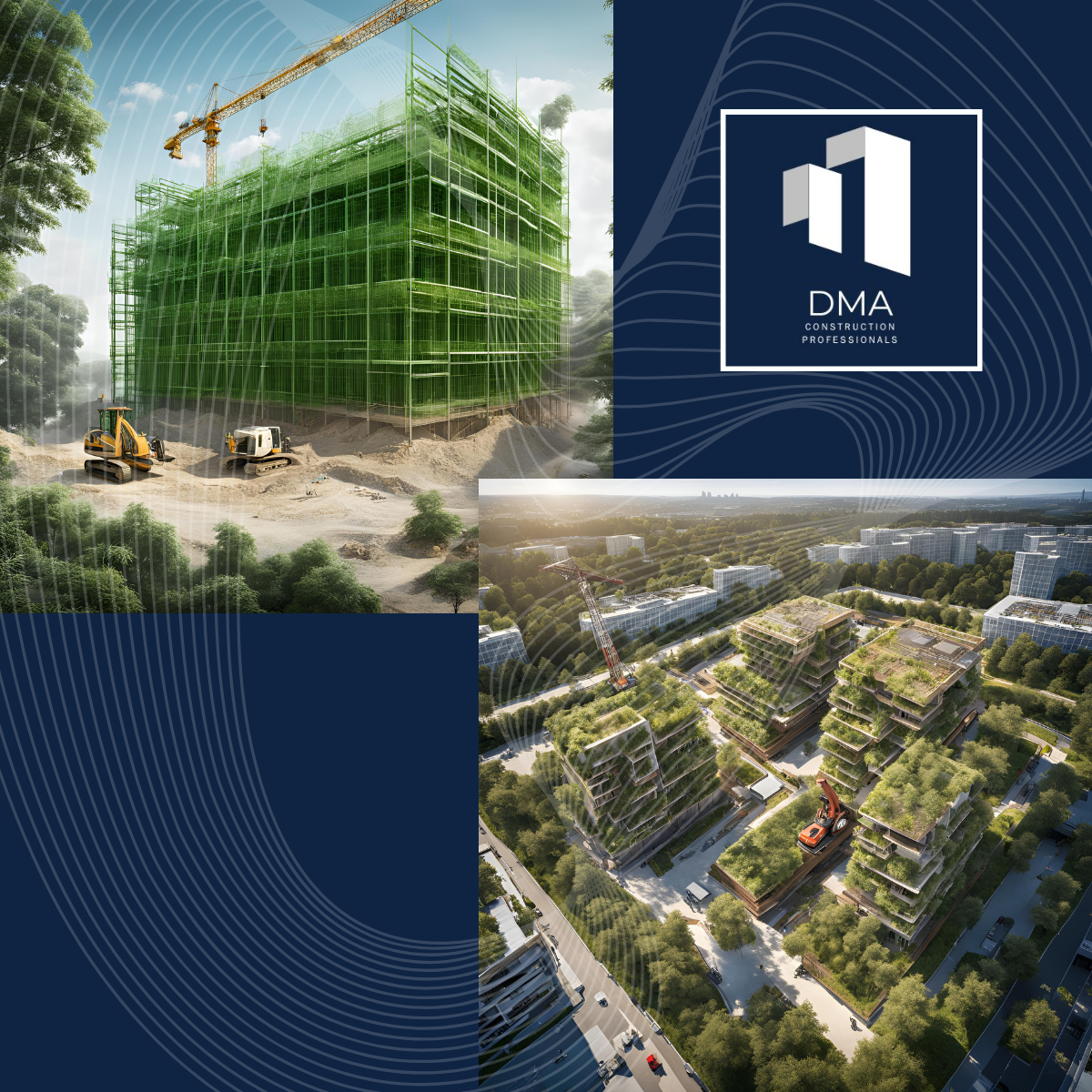Sustainability and Green Building in Construction
Sustainability has become a driving force in the construction industry. As climate change concerns escalate and environmental regulations tighten, the sector is increasingly focused on green building practices and sustainable development. From reducing carbon footprints to utilising eco-friendly materials, the shift towards sustainable construction is not just a trend—it’s a necessity.
The Growing Demand for Sustainable Building
The construction industry is responsible for nearly 40% of global CO2 emissions, with a significant portion coming from material production and energy use during building operations. As a result, there is immense pressure on firms to adopt sustainable practices, such as using renewable energy, reducing waste and ensuring energy-efficient building designs.
Governments and private sector clients are pushing for net-zero carbon goals and many projects now require compliance with environmental standards such as BREEAM, LEED, or WELL certifications. These certifications assess sustainability metrics like energy efficiency, water usage and material impact, holding firms accountable for their environmental footprint.
What Is Green Building?
Green building encompasses the practices, technologies and methods used to create structures that are environmentally responsible and resource-efficient throughout their life cycle. Key principles include:
Energy Efficiency
Reducing the amount of energy consumed during construction and the operational phase of a building.
Sustainable Materials
Using materials that are renewable, recycled, or have minimal environmental impact.
Water Conservation
Implementing systems that reduce water consumption and promote efficient water use.
Waste Reduction
Minimising waste generated during construction and promoting recycling or reuse of materials.
The Shift to a Circular Economy
One of the most significant changes in sustainable construction is the move towards a circular economy. This approach focuses on minimising resource consumption by reusing and recycling materials rather than relying on new, virgin resources. Circular construction reduces both environmental and financial costs, and it's becoming increasingly important as regulations around waste management grow stricter.
How DMA Construction Professionals Are Contributing to Sustainable Solutions
At DMA Construction Professionals, we understand that sustainability is not just about complying with regulations—it's about leading the charge in making the construction industry greener. Here’s how we bring sustainability to the forefront:
Expertise in Sustainable Practices
With over 70 years of combined experience, our team has worked on numerous projects that prioritise sustainability, including green infrastructure, energy-efficient systems and the use of eco-friendly materials. We stay informed on the latest advancements in sustainable technologies and ensure that our projects meet the highest environmental standards.
Reducing Carbon Footprint
DMA is committed to helping clients meet their carbon reduction goals. Whether it's through optimising energy use in buildings or sourcing materials with lower environmental impact, we work closely with clients to integrate sustainability into every phase of a project. This includes employing renewable energy sources, such as solar and wind, where feasible, and advocating for energy-efficient designs that lower operational costs in the long term.
Innovative Use of Material
One of our key contributions to green building is the innovative use of sustainable materials. From recycled steel to low-carbon concrete, DMA ensures that materials are sourced responsibly and used efficiently to minimise waste. By leveraging cutting-edge technologies and partnering with environmentally conscious suppliers, we help reduce the overall environmental impact of construction projects.
Sustainability Consulting
Beyond construction, DMA offers sustainability consulting services that help clients navigate environmental regulations, achieve green certifications and implement best practices in sustainability. We tailor these services to each project, ensuring that our clients not only meet but exceed the sustainability benchmarks required in today’s market.
Focus on Long-Term Impact
At DMA, we recognize that sustainability is about more than just the immediate project—it’s about creating structures that will have a lasting, positive impact on the environment and society. By considering the entire lifecycle of a building, we help ensure that our projects remain sustainable for decades to come, reducing environmental harm and contributing to greener cities and communities.
The Future of Sustainable Construction
As the demand for sustainable building grows, construction firms must rise to the challenge. Adopting green technologies, materials and practices is not optional—it’s the future of the industry. At DMA Construction Professionals, we’re proud to be part of that future, offering expertise and leadership in sustainability and green building.
Our objective is clear—to build a better, greener world through innovative construction practices that benefit our clients, communities and the planet. With sustainability at the core of what we do, DMA Construction Professionals is uniquely positioned to drive the construction industry toward a more sustainable and prosperous future.
#Sustainability #GreenBuilding #ConstructionInnovation #CircularEconomy #DMA

